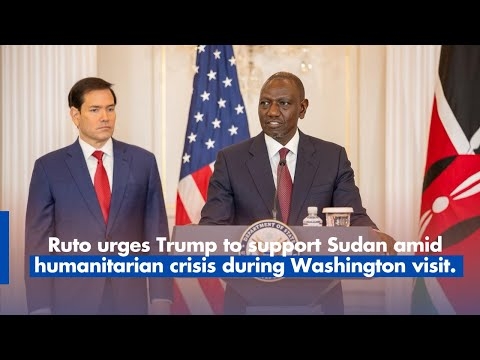On September 2, the world marks International Vulture Awareness Day dedicated to raising vulture conservation awareness. Often overlooked, vultures are vital members of our environment.
Commonly referred to as 'Earth's cleanup crew', vultures provide a crucial ecological service benefiting humankind immeasurably. By rapidly consuming and disposing of carcasses, these nature's scavengers significantly prevent the spread of deadly diseases, such as anthrax, bubonic plague and rabies, which can be transmitted to humans and livestock.
A single vulture is estimated to be worth over Sh1.1 million just for its cleaning services. By reducing the transmission of diseases, vultures are worth much more to governments in saving health costs.
Every year, millions of tourists visit Kenya's national parks and game reserves to enjoy our magnificent wildlife and breathtaking landscapes. These tourists earn the country a lot of revenue and create employment for thousands of Kenyans in the tourism and hospitality industries.
Through their scavenging activities, vultures help keep our wildlife areas clean and attractive, significantly contributing to the sustainability of the tourism sector. The economic value of vultures, therefore, cannot be overstated.
Unfortunately, vultures in Kenya and Africa are currently facing grave threats. Four of the eight vultures found in the country are classified in the IUCN Red List of Threatened Species as Critically Endangered – facing an extremely high risk of extinction in the wild.
These are the White-headed, Hooded, White-backed and Rüppell's vultures. Two others, Lappet-faced and Egyptian vultures, are listed as Endangered – facing a very high risk of extinction in the wild. Intentional and unintentional poisoning is the leading cause of vulture deaths in Kenya.
Our vast wildlife-rich Masai Mara and Amboseli landscapes are also home to people and their large herds of livestock. Quite often in these landscapes, predators like lions prey on cattle, resulting in a vicious conflict pitting people against wildlife.
At the heart of this conflict is the indiscriminate use of poisonous substances by livestock owners targeting predators. Innocent scavengers like vultures who feed on poison-laced carcasses end up dying in hordes. Between 2019 and 2022, 115 poisoning-related vulture deaths were recorded in Kenya.
Collisions with power lines and other energy infrastructure, loss of habitat and destruction of breeding sites also contribute to the decline of vulture populations.
Addressing human-wildlife conflicts is vital to reducing vulture mortality. On this front, Nature Kenya and other wildlife conservation stakeholders are fronting simple innovations to resolve the crisis.
Promoting the use of predator-proof bomas is one such intervention that, if properly done, offers cattle protection against nighttime predation. Another simple and scalable innovation is the use of livestock eyespots. This involves painting conspicuous eye-like symbols on cow rumps to deceive predators into thinking that they are being watched thereby preventing attacks.
More has to be done to keep Africa's largest and most recognisable birds of prey in our skies, and we all have a role to play in this. The government should increase efforts to conserve these magnificent birds and their habitats by strengthening their legal protection and law enforcement.
Vultures, like elephants and rhinos, need to be appreciated and equally given the protection they deserve. Collaborative research and data sharing on vulture conservation should also be enhanced.
The private sector, more so tourism industry players, can support by committing funds and other resources to vulture conservation initiatives. Such support can be used to upscale innovative solutions hitherto mentioned to address human-wildlife conflicts in places like Masai Mara and Amboseli.
By actively supporting vulture conservation initiatives, the tourism industry will not only contribute to the preservation of these valuable birds but also to the overall health and attractiveness of our natural landscapes.
Our mass media equally has a pivotal part in this. For long vultures have been portrayed as greedy and opportunistic creatures in popular culture. It is time to drop this narrative and view these birds as our indispensable allies for the services they provide. The media can contribute by featuring positive stories about vultures.
As individuals, we can spread awareness and share information about the importance of vultures and their conservation on various platforms, including social media channels.
Together we can secure a future where vultures continue to grace our skies and keep our environment clean and healthy.
Species and sites manager, Nature Kenya - the East Africa Natural History Society. [email protected]

















